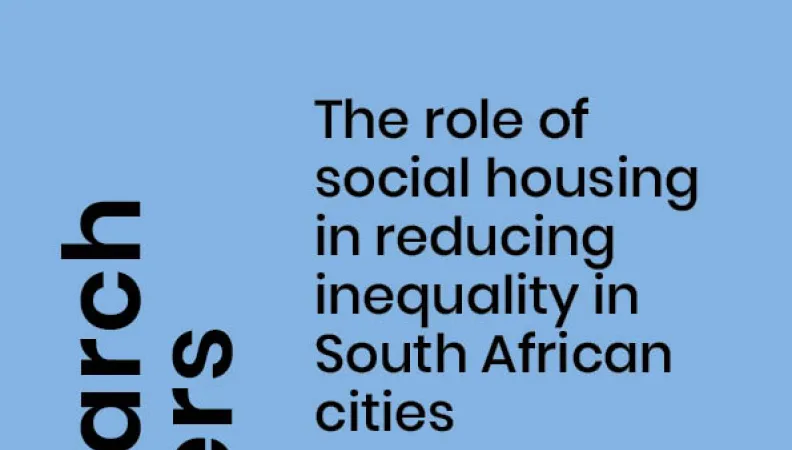Share the page
The role of social housing in reducing inequality in South African cities
Published on

Social housing is a powerful tool to integrate divided cities by providing decent rental accommodation for low- and moderate-income working families. It can bring communities together in dense urban areas with plentiful opportunities, and revitalise run down inner cities. Success depends on several enabling conditions: capable social housing agencies, viable subsidy levels, well-located land, support across government, private sector involvement and determined implementation. The paper maps the spatial distribution of all social housing projects built in South Africa’s seven largest cities since the 1990s. It reveals a steady ‘spatial drift’ of new projects from inner urban areas towards outlying areas. This contradicts the objectives of urban restructuring and social integration. The dispersal trend has been driven by the high cost of private land and the failure to make surplus public land available. Recommendations are offered to steer social housing schemes back towards well-located areas.
Useful Information
-
Authors
-
Andreas SCHEBA, Ivan TUROK, Justin VISAGIE
-
Coordinators
-
Edition
-
202
-
Page number
-
84
-
ISSN
-
2492 - 2846
-
Collection
-
Research Papers
